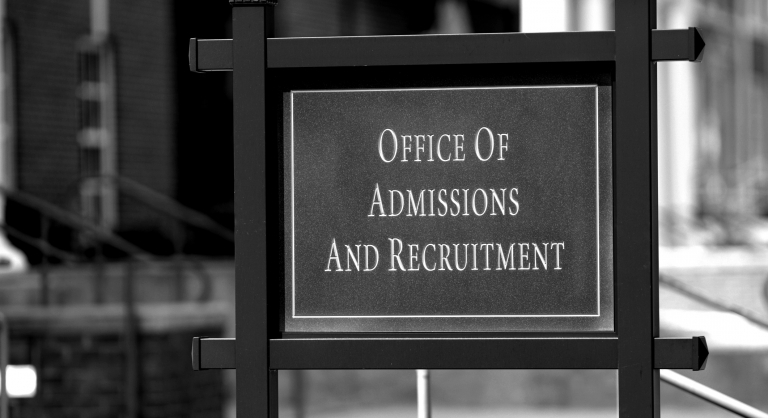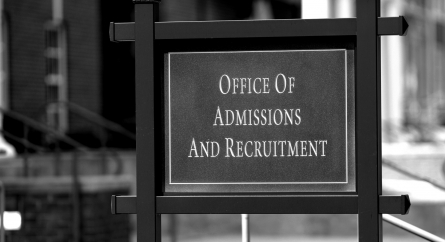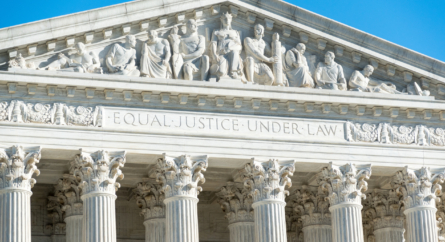Biden Administration Provides Guidance for Admissions Policies in the Wake of Students for Fair Admissions v. Harvard
On June 29, the U.S. Supreme Court issued the decision in Students for Fair Admissions vs. President and Fellows of Harvard College, which ruled that an applicant’s race, by itself, cannot be considered as part of who should be admitted as a student to a college or university. This left many institutions searching for strategies to fulfill their missions to enroll a diverse student body without considering applicants’ race.
In the weeks following the Court’s decision, the Biden administration has responded by calling on educational institutions to continue to pursue racial diversity, and by offering guidelines on how institutions may pursue those goals. A Dear Colleague letter and a “Q and A” document from the Department of Education, both issued on August 14, are the first substantive guidance documents that the administration has provided.
In the Dear Colleague Letter, the Department of Education notes that the Students for Fair Admissions decision applies only to the admissions portion of the process by which institutions develop their incoming classes, and encourages institutions to focus on recruitment and enrollment as points at which diversity can be achieved – for example, by making sure that a racially diverse array of students applies to the institution, and that a racially diverse cohort of students who are admitted choose to attend. The Dear Colleague Letter also notes that institutions may still consider race as it relates to an individual student’s experiences, such as overcoming adversity or disadvantage.
The following are some tips that the Dear Colleague Letter and Q and A document recommended for institutions to fulfill their goal of developing a racially diverse student body while complying with the Students for Fair Admission rule:
Admissions
- Institutions should take the time to review their diversity goals, including measures of diversity not related to race. They should identify and reward attributes that they most value, such as hard work, achievement, intellectual curiosity, potential and determination.
- Institutions should examine admissions preferences, including those associated with legacy and donor affiliation, which may reduce opportunities for students who are not from a privileged background.
- Institutions should continue to track applicants’ race, not for use in decision-making, but in order to develop demographic information that might inform recruiting and enrollment/retention efforts.
Recruitment
- Institutions should consider targeted outreach to, for example, school districts that serve predominately students of color, or schools from geographic locations that are underrepresented in the institution’s applicant pool.
- Institutions can offer pathway or pipeline programs, through partnerships with particular high schools, community colleges, or other programs. Institutions can offer summer camp opportunities, mentoring or programming to certain high school students, and encourage and/or incentivize them to apply to the institution. Some community college and high school students might be given the opportunity to take classes at the institution for credit in their current program of study. Students in a pathway program may be given preference in admission to the institution as long as criteria to enter the pathway program itself is not based on race.
Enrollment/Retention
- To encourage both retention of enrolled students and diversity in applicants, institutions should take steps to ensure that diverse groups of students feel a sense of belonging and support on campus. Offices of diversity, cultural centers and affinity groups that are open to all students regardless of race can assist in these efforts. School administration can also host meetings, focus groups or listening sessions on race-related topics.
This is not the only support that the administration will be providing. The Department of Education held a Summit on Equal Opportunity in Higher Education on July 26, and has promised a more comprehensive report on strategies for increasing diversity by September, as well as other unspecified “assistance” in recruitment, admissions and financial aid practices.
Client Tip
Bowditch has been tracking response to the SFFA decision since it was released, including information on how colleges have changed their essay questions in response to the decision, and the experiences of institutions that have dropped legacy preferences, both before and after the decision. Please join us in September for a Campus Roundtable, where attorneys from Bowditch and administrators from area institutions will discuss admissions strategies in the wake of SFFA, as well as changes to accommodations practices that might be necessary after another Supreme Court decision. Roundtable sessions will be held on September 19 in Boston and September 21 in Springfield. Get more information about our Higher Education Roundtable Series.
Categorized: College Admissions, Race
Tagged In: college admissions, race-based college admissions, racially diverse student body, Students for Fair Admissions









